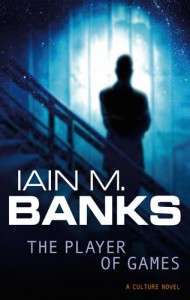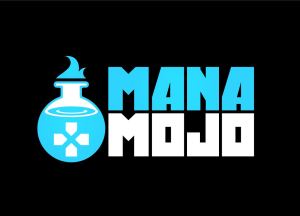 Welcome to the fourth instalment of Dust Jacket, our regular foray into the world of Sci-Fi literature. As always, I’m joined by Luke, self-confessed sci-fi junkie and world’s harshest critic.
Welcome to the fourth instalment of Dust Jacket, our regular foray into the world of Sci-Fi literature. As always, I’m joined by Luke, self-confessed sci-fi junkie and world’s harshest critic.
This week, we’re turning our attention to The Player of Games, the second of Ian M. Banks 8-novel Culture series.
WHAT YOU NEED TO KNOW
The Player of Games is the second of Iain M. Banks Culture series. The Culture is a vast transhuman society populated by both humans and sentient robotic drones that provides for all the basic needs of its citizens, allowing them to explore all the worldly pleasures lie has to offer, and to pursue their interests freely.
Jernau Morat Gurgeh’s interests, bordering on obsession, lie in the playing of strategy-based games, for which he has few equals. His status as a gamer affords him great prestige and celebrity within the Culture. This prestige, however, is not enough; he wants to go down as the greatest gamer of all time.
Playing a complex game against fellow gamer Olz Halp, Gurgeh is tempted into cheating by Mawrhin-Skel, a particularly devious and manipulative drone. In doing so, he leaves himself open to blackmail by Skel.
Fearing the repercussions of his actions, Gurgeh is forced to accept an offer from the Culture’s Special Circumstances branch – the espionage division of the Culture. He is to travel to the Empire of Azad, an Empire that may pose a potential long-term threat to the Culture. There, he will compete in their grand tournament, the defining cultural event for the denizens of Azad. So great is the status of the game that the victor is appointed Emperor.
WHAT WE THOUGHT
DAVID: Gurgeh is a fascinating character, an obsessed game player with a definite roguish charm. He’s incredibly arrogant, but incredibly intelligent and a master strategist. His arrogance stems from the unquestionable fact that he is indeed the best at what he does, but he’s driven by his pride and arrogance to continually prove it. He’s not what I’d call a likeable character, but he’s certainly a compelling protagonist.
LUKE: ‘Don’t you get any pleasure from this sort of thing?’ his protégé asks early on. ‘No,’ he replies. ‘And neither will you, after a while.’ The next fifty pages proceed to tell us just how bored Jernau Gurgeh is. Banks could’ve done it in twenty. Whilst you get the meeting with Contact, are introduced to Mawrhin-Skel, and see the world Gurgeh is eventually going to leave behind, there are long periods where it feels like nothing happens. It isn’t until the game against Olz Halp that he, and the novel, becomes interesting. Here we see what the character is made of, and the consequences of his actions.
DAVID: I have to disagree. I found myself fascinated with Gurgeh right from the outset, and at no point did my interest wain. I agree, though, that the game against Olz Halp is where the book really picks up pace. It’s here that we see Gurgah’s arrogance work against him, leading to his blackmail at the hands of Mawhrin-Skel. This is really the first sign of the potentially dangerous nature of obsession as a driving force. When presented with an opportunity to cheat against a younger, inexperienced player, Gurgeh takes it. There is nothing at stake but the chance to go down in history as the greatest game player of all time, a chance Gurgeh is unable to resist.
LUKE: After Gurgeh wins the game, but loses the glory, Banks writes about a house drone finding a broken, twisted game piece as it cleans up. A nice bit of subtext alluding to Gurgeh’s obsession and the loss of what he still cares about: his status. This is what leaves him open to blackmail by Mawrhin-Skel. Not only has he lost his place in history, he now faces disgrace. Here Banks sow the seeds for what is Gurgeh’s greatest flaw. He sees himself as a player of the game, not a pawn moved around the board.
DAVID: The Empire of Azad is a fascinating society whose every aspect is dominated by the game. Rulers are chosen through victory on the boards and social status is determined by where one finishes in the great competition. In the Empire we see the reflection of Gurgeh’s own obsession. This is obsession on a grand social scale, where all aspects of society are determined by the game and victory is more than just a matter of pride. Whereas Gurgeh is held in high regard within his own culture, here he has the potential to rule a galaxy should he win. As he progresses through each round, we see that realisation dawn on him, fuelling his obsession even more.
LUKE: It’s when Gurgeh gets to the Empire of Azad that the plot becomes interesting. The proceeding hundred pages are really just set up. Things finally start to happen. Gurgeh is not just an outsider in another society, but a perceived threat as well. His life is put in as much danger, if not more so, as his gamesmanship. Taken out of a familiar environment, his naiveté is fully exploited. At one point, the Empire lures him into a honey trap from which he is saved only by the quick thinking of Shohobohaum Za, the Culture’s ambassador to Azad. Several attempts are made on his life. It takes him a long time to understand that the Empire a) doesn’t like intruders and b) is not just playing a game but determining a future that his playing ability threatens to destabilise.
DAVID: Gurgah’s obsessive drive is also incredibly self-destructive, something that is apparent in Gurgeh, but reflected tenfold in his final opponent, Emperor Nicosar. The emperor would rather destroy himself and all around him than lose, even if it means the downfall of the Empire. Like the culture he rules, he too is a reflection of Gurgeh.
LUKE: The problem with the Emperor is he plays a predictable game against Gurgeh. Nothing he does, in the game itself or behind the scenes, is particularly clever. Honey traps, assassination attempts, even disgrace on the boards, there is no real hint of a greater intellect at play against our hero. They prey on his naiveté, but when that begins fade, when he ups his game, the Emperor (and by extension) his Empire doesn’t up theirs. Nor do they really attempt to manoeuvre against Za or Flere-Imsaho, Gurgeh’s AI advisor.
DAVID: Banks gives us just enough information on the nature and rules of the game to hold our interest and inform the narrative, without getting bogged down in the minutiae of gameplay or distracting away from Gurgeh’s plight. Banks understands that, while the games are interesting, the truly compelling aspect of Player of Games lies in his protagonist.
LUKE: Azad’s game is not necessarily about victory on the basis of intellect alone. Gurgeh witnesses alliances form and rivalries fought out. Careers and lives are won and lost. Gurgeh himself is able to
use the game to enact a form vengeance against the Empire on behalf of Azad’s dispossessed. That’s another problem. The deeper your hero travels into the plot, the harder the challenges he should face. Gurgeh always has some initial difficulty, then seems to overcome his opponents with ease. Stakes are created, but the tension is never maintained. I understand this is part of the point, and in the context of the wider events of the novel this makes sense, but the moments themselves become somewhat of an afterthought.
DAVID: Probably the only weakness I found in The Player of Games is that I didn’t really get a full sense of the nature of the Culture as a society. There is enough information here to give me the basics, with few embellishments, but I found myself wanting more. What is it about the Culture that shapes a man like Gurgeh? How does it compare/contrast with the Empire? Perhaps it’s because this is book 2 in the series, and I’ve yet to read Consider Phlebis, the first Culture novel. I feel that perhaps a little more exploration into the nature of the Culture might have provided a greater comparison/contrast to Azad.
LUKE: Whilst I haven’t read Consider Phlebas, I had no trouble understanding the Empire or the Culture. I wanted to get to the blackmail and Azad itself sooner. I also wanted more surprises. Some of what’s going on is a little obvious, particularly if you’ve read Ender’s Game or John Le Carré’s George Smiley novels.
DAVID: The Player of Games is a fascinating study of the nature of obsession and pride. Through the examination of the game and those who plays it he shows as a darker, self-destructive side of ourselves. 3.5 Lukes.
LUKE: Some strong writing, some entertaining plot elements and an intriguing character don’t quite make up for a plodding start and lack of fresh ideas in the plot. An enjoyable read, but not one that I found special. 3 Lukes.
WHAT DO YOU THINK?
Is Player of Games worthy of the praise I’ve lavished on it, or is Luke’s assessment closer to your own? Send us your comments, criticisms and, most importantly, your votes! Help us compile the definitive list of Greatest Sci-Fi Masterpieces.
THE RANKINGS
Four books down…hundreds to go! Here’s what we have so far:
POSITION TITLE AUTHOR RANKING
1 Foundation series Isaac Asimov 4.5
2 The City and the Stars Arthur C. Clarke 4
3 Non-Stop Brian Aldiss 3.5
4 Player of Games Ian M. Banks 3.25
BEHOLD…THE FUTURE!
Join us in two weeks when we’ll look at Joe Haldeman’s 1974 Nebula-awarding winning novel The Forever War.









One of my favourite Banks novels.
Consider Phlebas, the first book, won’t really help you get a handle on the Culture, because the primary POV character (we later discover) has sided with the Culture’s enemies. Also, because there is a big time difference between each Culture novel: if you follow the series you can see the Culture evolve in the milieu as a political, military and technological power over several millennia.
Gurgeh himself is not a good exemplar of a citizen of the Culture. He is shown to be a bit of a social anachronism, and his obsession (and facility) with games is what singles him out to Special Circumstances. Of course the irony of the situation is that because of exactly these two personality flaws, Special Circumstances is able to play him like a pawn on a chessboard.
Good book, but my favourite in the series is USE OF WEAPONS.